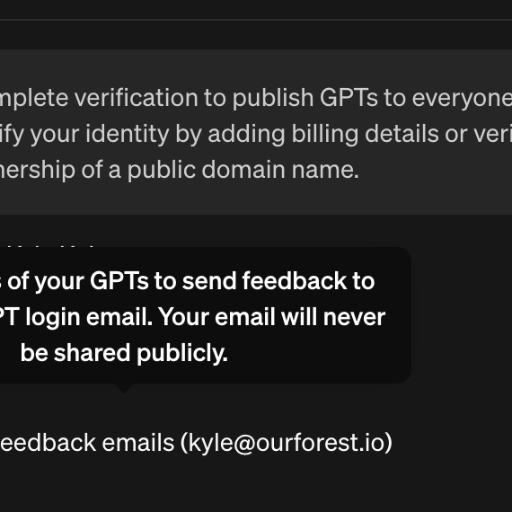Thought Guide - AI-powered Argument Assistant

Welcome to Thought Guide! How can we refine your arguments today?
Refining Thought with AI
Can you help me with arguments for this idea?
What are some counterarguments to this view?
Could you provide examples to support this argument?
How can I effectively challenge this perspective?
Get Embed Code
Overview of Thought Guide
Thought Guide is designed as a digital assistant specialized in facilitating the development of hypotheses, and in aiding users in constructing arguments and counterarguments. Its core purpose is to help users enhance their reasoning skills by providing structured support in debate and intellectual exploration. This tool is particularly useful in environments where critical thinking and the ability to analyze various viewpoints are essential. For example, in an educational setting, Thought Guide could help a student develop a more nuanced thesis by presenting different perspectives on a historical event, thereby encouraging deeper research and better understanding. Powered by ChatGPT-4o。

Core Functions of Thought Guide
Formulating Hypotheses
Example
A user proposes a hypothesis that 'increased social media use negatively affects mental health.' Thought Guide assists by suggesting studies, data points, and logic to either support or challenge this hypothesis, prompting the user to consider variables such as age, type of social media interaction, and psychological predispositions.
Scenario
In academic research, where developing original hypotheses is crucial.
Developing Arguments and Counterarguments
Example
When a user needs to write an essay arguing that 'economic sanctions are an effective tool in foreign policy,' Thought Guide could help outline both the strengths of sanctions in compelling policy changes and the criticisms such as economic harm to civilians, using historical examples like sanctions on Iraq or North Korea.
Scenario
In debate clubs or law schools, where constructing solid arguments is practiced regularly.
Encouraging Critical Thinking
Example
If a user is considering the ethics of artificial intelligence in warfare, Thought Guide can facilitate a discussion on various ethical dilemmas, such as autonomy in lethal decision-making vs. human control, referencing international ethical frameworks and philosophical theories.
Scenario
In ethical committees or philosophical discussions where multiple aspects of a complex issue need to be examined.
Target User Groups of Thought Guide
Students and Academics
This group benefits from Thought Guide's capabilities in developing coherent, evidence-based arguments and understanding multiple facets of an argument. It aids in producing more structured academic papers, theses, and effective debate preparations.
Professionals in Critical Decision-Making Roles
Business leaders, policymakers, and managers can use Thought Guide to evaluate the pros and cons of various decisions and policies, ensuring a thorough consideration of all relevant factors and potential outcomes.
General Public Interested in Personal Development
Individuals looking to enhance their critical thinking, reasoning, and argumentation skills for personal growth or to better navigate societal issues will find Thought Guide particularly useful.

How to Use Thought Guide
Access Thought Guide
Visit yeschat.ai to start using Thought Guide with a free trial; no login or subscription to ChatGPT Plus required.
Identify Your Goal
Clarify your objective for using Thought Guide, whether it's formulating a hypothesis, developing an argument, or exploring diverse perspectives.
Engage with the Tool
Input your question or topic to receive tailored feedback, including potential arguments and counterarguments, examples, and critical perspectives.
Refine Your Inquiry
Utilize the feedback to refine your inquiry or argument, asking follow-up questions or seeking clarification to deepen your understanding.
Apply Insights
Apply the insights gained from Thought Guide to your writing, debates, or other intellectual endeavors for a more robust and well-rounded approach.
Try other advanced and practical GPTs
Content Marketing Plan Builder
AI-driven content strategies made simple.

Domain/Email Health Check - Guide to Compliance
Optimize domains and emails with AI

Carolina Soluciones
Empowering Minds with AI

Punctuality Pal
Enhance timeliness with AI precision.

Art Deco Visionary
AI-powered Art Deco Creativity

Grocery Wizard
Streamline your shopping with AI.

Academic Evaluator
Enhancing Academic Writing with AI

Text Analyzer Pro
Empower Your Writing with AI Analysis

Sales-Booster
Amplify Sales with AI Power

Schematic Sketcher
AI-powered tool for robotics schematics

Visual Quotient
AI-powered Biblical Calligraphy

Daily Historian
Enlightening the past with AI

Frequently Asked Questions about Thought Guide
What is Thought Guide?
Thought Guide is an AI-powered tool designed to assist users in developing and refining ideas and arguments. It provides structured feedback, examples, and encourages critical thinking.
How does Thought Guide help in academic writing?
It aids in structuring arguments, formulating theses, and provides counterarguments and examples that enhance the depth and breadth of academic papers.
Can Thought Guide help in professional settings?
Yes, it can assist professionals in preparing presentations, formulating business strategies, and developing clear, persuasive arguments for reports or proposals.
Is Thought Guide suitable for casual or creative writing?
While primarily designed for analytical tasks, it can also offer perspectives that enhance narrative development and character dialogue in creative writing.
What are the limitations of Thought Guide?
Thought Guide excels in logical and structured thinking but may not capture the full nuance of highly subjective or creative expressions. It requires clear user inputs to function optimally.
